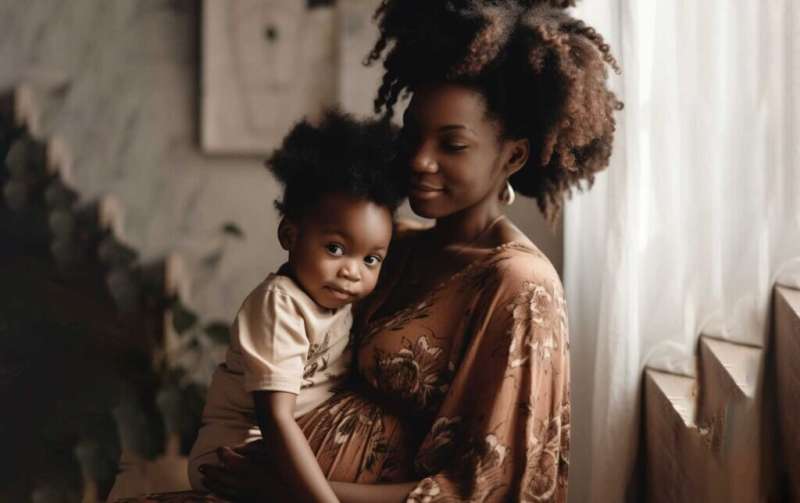This article has been reviewed according to Science X's editorial process and policies. Editors have highlighted the following attributes while ensuring the content's credibility:
fact-checked
trusted source
proofread
Despite some worries, pregnant moms love their second child as much as their first, says study

As second-time moms await the arrival of their new baby, many may think about what it will mean to raise two children instead of one, but most don't worry excessively about bonding with their second child or whether they will love both children the same.
A new University of Michigan study, however, uncovered some psychological risks among those moms who do worry.
The findings are contrary to a widely held belief that it is common and normal for women to be worried about loving their second baby as much as they currently love their first child. Although some mothers may worry a little if they can form an attachment to their second baby, such feelings are "not common and universal," says Brenda Volling, U-M psychology professor and the study's lead author.
The study, published recently in the Infant Mental Health Journal, focused on 240 pregnant mothers expecting their second baby. About 70% of the mothers reported they did not worry at all about forming an attachment to their second baby—what the authors referred to as maternal-fetal relationship anxiety, or MFRA. On the other hand, about 20% worried a little, while 5% of the mothers worried "very much" or were "extremely" worried.
Volling, whose research focuses on early social and emotional development and parent-child interaction, says the women who experienced high levels of anxiety also had other psychosocial risks in their lives—including more depression, more conflict in their marriages, and their firstborn children had less secure attachments.
"These mothers also held more ambivalent and avoidant attachment styles themselves, based on their own childhood attachment experiences," she said.
To overcome excessive anxiety and feelings of insecurity in close social relationships, mothers may wish to seek professional help from care providers or join support groups. Coming to understand the source of these insecurities "would most likely free them to feel closer to their babies," Volling said.
The media also has a role in the perception of maternal mental health issues—sometimes negatively. In fact, Volling says blogs and articles about what moms can expect when having their second baby have made it difficult for mothers to seek help and support by claiming it was normal for mothers to feel less attached to their second babies.
"I was very concerned that we were doing a disservice to these women by telling them 'not to worry,' 'it was completely normal' and 'everything would change once the baby was born,'" she said.
Fathers' attachment to their children is also important—and there are similarities to mothers' attachment to the unborn baby.
"Fathers who are also depressed during the perinatal period can have difficulties establishing an attachment to the baby during pregnancy, and this does not appear to be because men themselves are not the pregnant parent," Volling said.
As is the case for mothers, it is the social support and relationship risks surrounding these men that matter, she said.
More information: Brenda L. Volling et al, Will I love my second baby as much as my first? Prevalence and psychosocial correlates of maternal‐fetal relationship anxiety for second‐time mothers, Infant Mental Health Journal (2023). DOI: 10.1002/imhj.22060




















